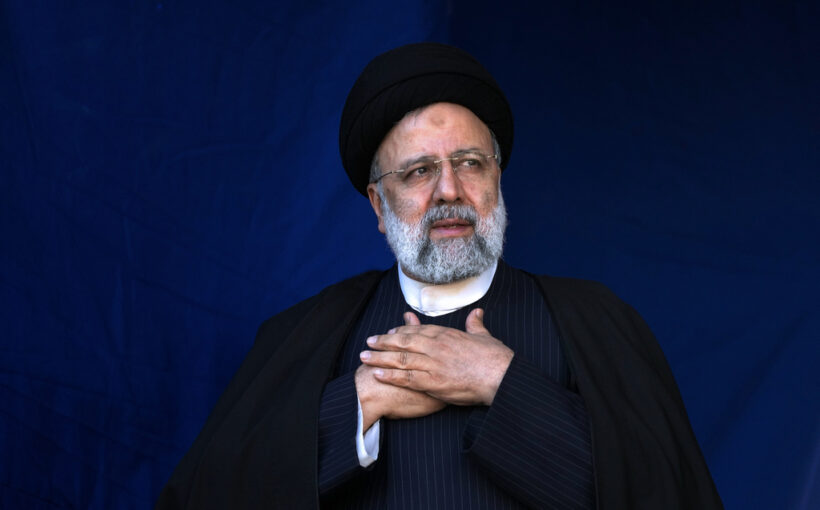Emergency services have been scrambled after a helicopter carrying Iran’s president was forced to make a “hard landing” on Sunday, state media reported.
The aircraft, carrying President Ebrahim Raisi, was involved in an “accident” close to the city of Jolfa, on Iran’s northwestern border with Azerbaijan. Iran’s Foreign Minister Hossein Amir-Abdollahian was also reportedly on board the aircraft.
Speaking to the state Islamic Republic News Agency, emergency services ministry spokesman Babak Yektaparast said rescuers had been unable to reach the crash site by helicopter due to heavy fog. A convoy of eight ambulances has been dispatched, accompanied by doctors and paramedics, he added.
Interior Minister Ahmad Vahidi told local media that “relief groups are moving toward the area, but due to fog and bad weather it may take some time to reach the scene of the accident.”
Iran’s state-run IRINN news agency has reported that the crash site is located on rough, rocky terrain with 70-meter boulders blocking the path.
Senior Iranian officials have met to discuss the incident, Islamic Republic spokesperson Ali Bahadri Jahormi said in a statement. Executive Vice President Mohammad Mokhber has left Tehran for the northwestern city of Tabriz, closer to the crash site, he added.
Reacting to the news, European Commission President Charles Michel said the bloc’s member states and partners were “monitoring the situation closely” given the condition of those on board the helicopter is “not yet clear.”
Speaking to Reuters, an unnamed Iranian official said that the lives of Raisi and Abdollahian could be at risk. “We are still hopeful, but information coming from the crash site is very concerning,” the official said. A story posted to Raisi’s official Instagram account asks Iranians to pray for him.
Further details are yet to be published and local media have issued a series of contradictory statements. Iran’s IRIB News Agency reported that fears are growing that the incident is “serious” and that “there is a high possibility of injuries.”
Raisi, 63, was returning to Iran from a state visit to Azerbaijan where he met with President Ilham Aliyev. The pair cut the ribbon on a major dam along their shared border.
A hardliner and former head of the judiciary, Raisi has been tipped by analysts as a potential successor to 85-year-old Ayatollah Ali Khamenei as supreme leader.
Raisi has overseen an increasingly belligerent foreign policy, repeatedly threatening all-out war against Israel since the start of the Israel-Hamas conflict in Gaza and providing weaponry and political support to Russia. Last month, Iran launched a wave of drones against Tel Aviv and Jerusalem in what it said was revenge for a strike on its consulate in Syria that killed two top Revolutionary Guards commanders.
Iran’s government has also faced widespread protests organized by the Woman, Life Freedom movement after 22-year-old Mahsa Amini died in hospital after being arrested by the country’s morality police for not wearing her mandatory hijab in line with official standards. Public outrage saw tens of thousands take to the streets, creating an unprecedented crisis for Raisi’s theocratic government. Iran’s Human Rights Activists News Agency reported more than 500 demonstrators had been killed as part of a brutal police crackdown.
This story is being updated.


